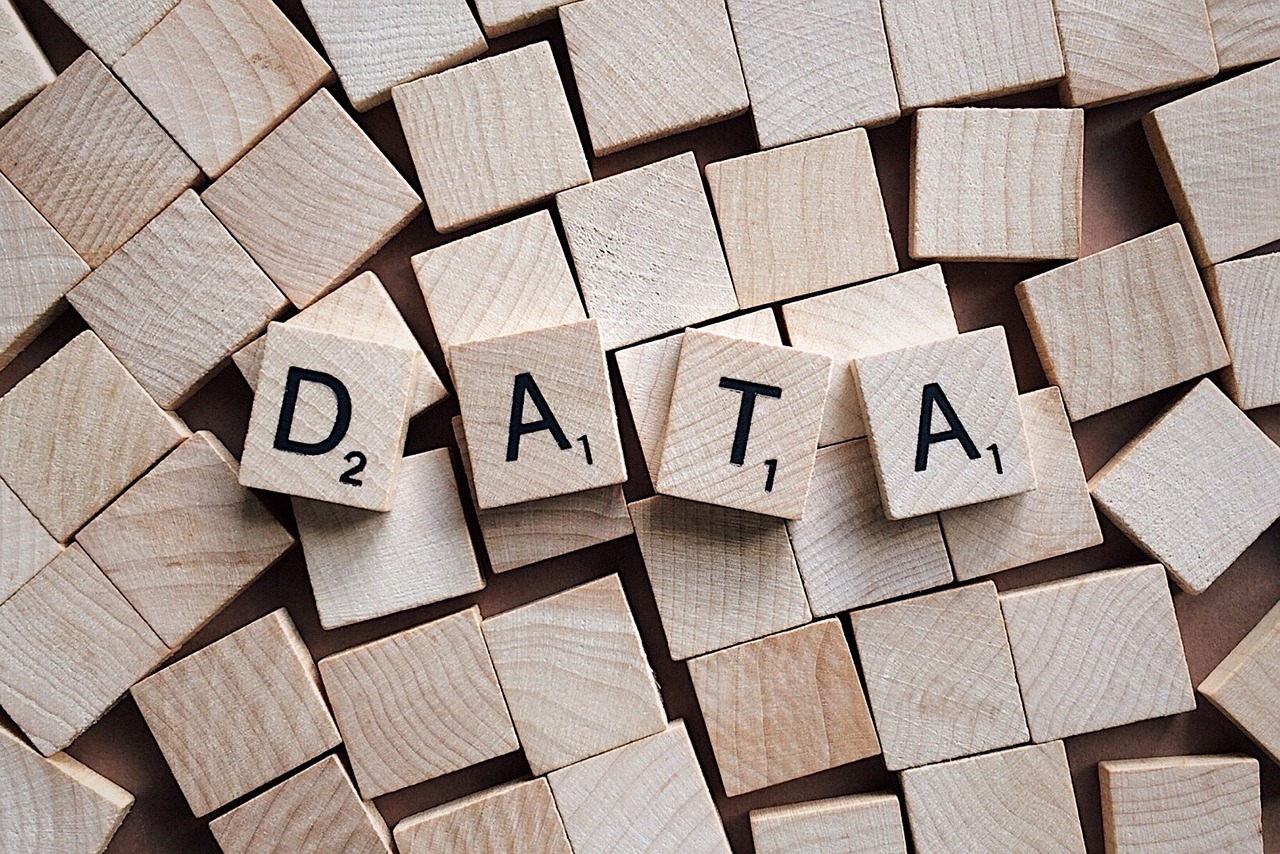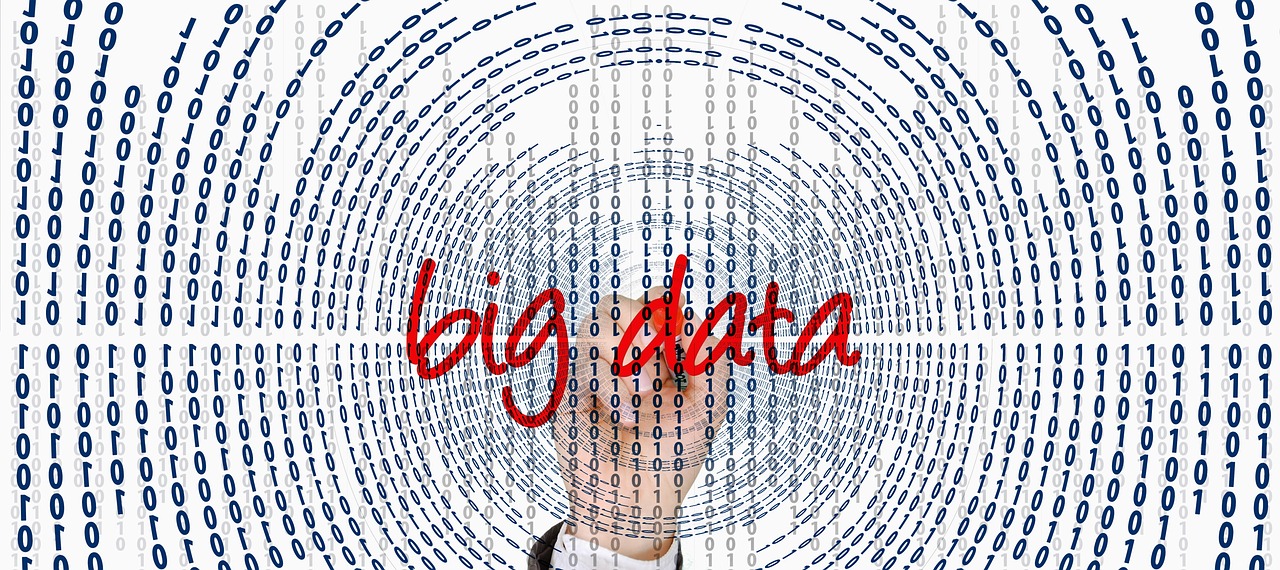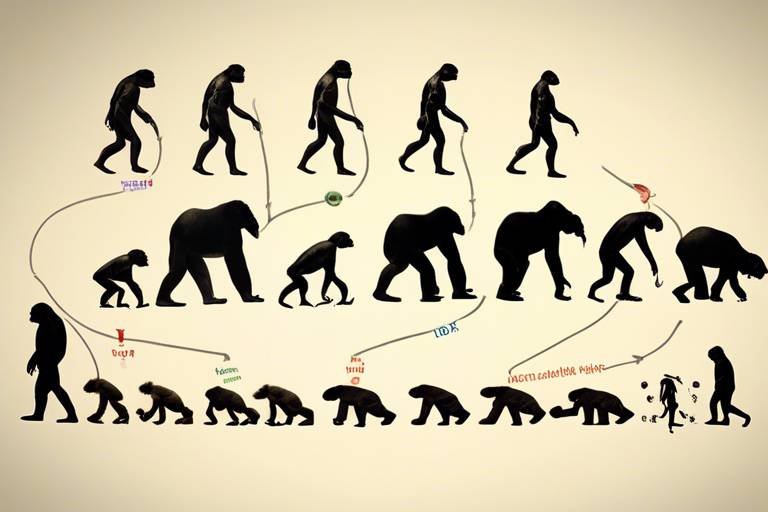How Morals Play a Role in Data Science
In the rapidly evolving field of data science, the intersection of technology and ethics is becoming increasingly significant. As we dive deeper into the vast ocean of data, we must navigate the turbulent waters of moral considerations. But why is it so important to focus on morals in data science? Well, think of data as a powerful tool—much like a double-edged sword. It can be used to create revolutionary advancements or cause significant harm if wielded irresponsibly. This article explores the vital role that ethics and morals play in data science, highlighting how these principles guide professionals in their pursuit of responsible data collection, analysis, and application.
Ethics form the backbone of responsible data science practices, guiding professionals in making decisions that respect privacy, promote fairness, and avoid harm to individuals and communities. Just as a compass directs a sailor through uncharted waters, ethical guidelines direct data scientists towards fair and just outcomes. Without these guidelines, the potential for misuse of data becomes alarmingly high. Imagine a world where algorithms make decisions without the consideration of human values—this could lead to discrimination, privacy violations, and a loss of trust in technology.
Understanding the significance of data privacy and obtaining informed consent is crucial in data science. Each piece of data represents an individual's rights and personal information. Thus, ensuring that these rights are protected while utilizing data for analysis is paramount. Informed consent isn't just a checkbox to tick off; it’s about respecting individuals' autonomy and their right to control their own data. Without proper consent, data scientists risk violating ethical standards and legal regulations, leading to dire consequences.
Various legal frameworks, such as the General Data Protection Regulation (GDPR) and the California Consumer Privacy Act (CCPA), establish guidelines for ethical data usage. These regulations emphasize the necessity for compliance and accountability in data-driven projects. They serve as a safety net, ensuring that data scientists operate within a framework that protects individual rights. Understanding these laws is not just beneficial; it’s essential for anyone involved in data science.
Violating ethical standards can lead to severe consequences. The fallout from ethical breaches can include:
- Legal repercussions: Fines and sanctions that can cripple organizations.
- Loss of public trust: Once trust is lost, it’s incredibly challenging to regain.
- Damage to reputation: A tarnished reputation can have long-lasting effects on a company’s viability.
These consequences highlight the importance of adhering to ethical standards in data science practices.
Implementing best practices in data handling is crucial for upholding ethical standards. Transparency, data minimization, and regular audits are just a few examples of practices that foster trust among stakeholders. By prioritizing these practices, organizations can demonstrate their commitment to ethical data usage, thus enhancing their credibility in the eyes of the public.
Addressing bias in algorithms is essential to ensure fair outcomes in data science. Algorithms that are trained on biased data can perpetuate discrimination and inequality in decision-making processes. For instance, if a hiring algorithm is trained on historical data that reflects gender bias, it may continue to favor male candidates over equally qualified female candidates. This is not just a technical issue; it’s a moral one that data scientists must confront head-on.
Establishing accountability mechanisms in data science practices is vital for ensuring that professionals take responsibility for their work and its impact on society. Accountability goes beyond just adhering to laws; it involves a commitment to ethical principles that prioritize the welfare of individuals and communities. Data scientists must ask themselves: “How will my work affect others?” This question should be at the forefront of their decision-making processes.
Data scientists play a crucial role in ethical decision-making. They are often at the crossroads of technology and morality, navigating complex dilemmas while balancing technical proficiency with social responsibility. Their expertise allows them to understand the implications of their work, making them key players in promoting ethical practices within their organizations.
Engaging with various stakeholders, including ethicists, policymakers, and community members, enriches the ethical discourse in data science. This collaboration leads to more inclusive and responsible practices. By bringing diverse perspectives into the conversation, data scientists can better understand the societal implications of their work and ensure that their practices align with the broader moral landscape.
- Why are ethics important in data science?
Ethics guide data scientists in making responsible decisions that respect individual rights, promote fairness, and prevent harm to communities.
- What are some legal frameworks governing data use?
Important legal frameworks include the GDPR and CCPA, which set guidelines for ethical data usage.
- How can bias in algorithms be addressed?
Bias can be addressed by ensuring diverse training data and continually auditing algorithms for discriminatory outcomes.

The Importance of Ethics in Data Science
This article explores the intersection of ethics and data science, highlighting the importance of moral considerations in data collection, analysis, and application to ensure responsible and fair outcomes.
Ethics form the backbone of responsible data science practices, guiding professionals in making decisions that respect privacy, promote fairness, and avoid harm to individuals and communities. In a world where data drives decisions, the moral compass of data scientists is more crucial than ever. Just imagine how a single algorithm can influence hiring decisions, loan approvals, or even law enforcement actions. The stakes are high, and without a solid ethical framework, the consequences can be dire.
At its core, ethical data science is about more than just compliance with laws; it's about doing the right thing. When data scientists approach their work with a strong ethical foundation, they not only safeguard individual rights but also enhance the credibility of their findings. This is particularly important in an age where misinformation can spread like wildfire. By adhering to ethical standards, data scientists can help ensure that their analyses contribute positively to society.
Moreover, ethics in data science fosters trust among stakeholders. When organizations are transparent about their data practices and prioritize ethical considerations, they build a reputation that attracts customers, partners, and talent. This trust is invaluable. Think of it like a bank; if you know your money is safe and managed responsibly, you're more likely to invest. Similarly, when people feel secure about how their data is being handled, they're more willing to engage with the services that utilize that data.
However, the path to ethical data science is fraught with challenges. Data scientists often face dilemmas that require them to balance competing interests. For instance, while a company may want to leverage data for profit, it must also consider the potential impact on user privacy and societal norms. This is where a robust ethical framework becomes essential, serving as a guide to navigate these murky waters.
In summary, the importance of ethics in data science cannot be overstated. It is the foundation upon which responsible practices are built, influencing everything from data collection to analysis and application. As we continue to integrate data into our daily lives, the onus is on data scientists to ensure that their work not only advances technology but also respects the fundamental rights of individuals.
- Why is ethics important in data science? Ethics is crucial in data science to protect individual rights, promote fairness, and maintain public trust in data-driven decisions.
- What are some common ethical issues in data science? Common issues include data privacy concerns, algorithmic bias, and the potential misuse of data for harmful purposes.
- How can data scientists ensure they are practicing ethically? Data scientists can practice ethically by adhering to established guidelines, seeking informed consent, and engaging in open dialogue with stakeholders.

Data Privacy and Consent
In today's digital age, where data is often referred to as the new oil, understanding data privacy and consent has become more crucial than ever. Imagine walking into a store, only to find that every move you make is being recorded and analyzed without your knowledge. It's unsettling, right? Similarly, in the realm of data science, the collection and use of personal data without explicit consent can lead to significant ethical dilemmas. Data privacy is not just a legal requirement; it embodies the fundamental respect for individuals’ rights and freedoms.
Obtaining informed consent means that individuals are fully aware of what data is being collected, how it will be used, and who will have access to it. This transparency builds trust between data scientists and the public. Without trust, data-driven insights lose their value, and the very foundation of ethical data practices crumbles. It's akin to a relationship—without honesty and openness, the bond weakens.
Moreover, the concept of consent isn't static; it evolves. People should have the right to withdraw their consent at any time, just like you can change your mind about sharing a secret. This fluidity in consent is essential for fostering an ethical approach to data science. As technology advances, so do the methods of data collection and analysis, which means that consent mechanisms must also adapt.
Various legal frameworks have been established to protect data privacy and enforce ethical standards. For instance, the General Data Protection Regulation (GDPR) in Europe sets a high benchmark for data protection, requiring organizations to obtain clear consent from individuals before processing their data. Similarly, the California Consumer Privacy Act (CCPA) provides California residents with rights regarding their personal information. These regulations are not just bureaucratic hurdles; they are essential tools to ensure that data is handled responsibly.
| Regulation | Key Features |
|---|---|
| GDPR | Requires explicit consent, data portability, and the right to be forgotten. |
| CCPA | Gives consumers the right to know about personal data collected and the ability to opt-out of its sale. |
These frameworks emphasize the need for compliance and accountability in data-driven projects. They serve as a reminder that ethical data handling is not just a best practice; it’s a legal obligation that organizations must adhere to.
Ignoring ethical standards in data privacy can lead to severe repercussions. Imagine a scenario where a company misuses customer data—it could face hefty fines, legal actions, and a significant loss of public trust. The repercussions are not just financial; they can tarnish an organization’s reputation for years, creating a ripple effect that impacts stakeholders, employees, and customers alike.
To uphold ethical standards in data science, organizations should implement best practices that prioritize transparency and data minimization. Here are a few principles to consider:
- Transparency: Clearly communicate data collection methods and purposes to individuals.
- Data Minimization: Collect only the data that is necessary for a specific purpose.
- Regular Audits: Conduct audits to ensure compliance with data privacy regulations.
By adhering to these practices, data scientists can foster trust among stakeholders and ensure that their work benefits society as a whole.
- What is data privacy? Data privacy refers to the proper handling, processing, and storage of personal information to protect individuals' rights.
- Why is consent important in data science? Consent ensures that individuals are aware of and agree to how their data will be used, fostering trust and respect.
- What are the consequences of violating data privacy? Consequences can include legal penalties, loss of reputation, and diminished public trust.

Legal Frameworks Governing Data Use
When it comes to data science, the landscape is not just about algorithms and analytics; it’s also heavily influenced by a complex web of legal frameworks. These frameworks serve as the guiding principles that help ensure data is used responsibly, ethically, and transparently. Among the most notable regulations are the General Data Protection Regulation (GDPR) and the California Consumer Privacy Act (CCPA). Both of these laws aim to protect individuals' data rights and impose strict guidelines on how organizations can collect, store, and use personal information.
The GDPR, which came into effect in May 2018, is a comprehensive data protection law that applies to all companies operating within the European Union (EU) and those outside the EU that offer goods or services to EU residents. This regulation emphasizes the importance of obtaining explicit consent from individuals before processing their data. It also grants individuals the right to access their data, request corrections, and even demand deletion under certain circumstances. The penalties for non-compliance can be staggering, reaching up to €20 million or 4% of global annual turnover, whichever is higher.
On the other hand, the CCPA, which took effect in January 2020, provides California residents with enhanced privacy rights. It allows consumers to know what personal data is being collected, the purpose behind its collection, and the right to opt-out of the sale of their personal information. Unlike GDPR, which applies to all data controllers, CCPA primarily targets businesses that meet specific thresholds, such as having annual gross revenues exceeding $25 million.
Here's a quick comparison of these two significant legal frameworks:
| Aspect | GDPR | CCPA |
|---|---|---|
| Geographical Scope | European Union | California, USA |
| Consent Requirement | Explicit consent required | Opt-out option available |
| Penalties for Non-compliance | Up to €20 million or 4% of global turnover | Up to $7,500 per violation |
In addition to GDPR and CCPA, there are other regulations and frameworks globally that influence data practices, such as the Health Insurance Portability and Accountability Act (HIPAA) in the United States, which safeguards medical information, and the Personal Information Protection and Electronic Documents Act (PIPEDA) in Canada. Each of these frameworks underscores the critical need for organizations to not only comply with legal standards but also to foster a culture of ethical data use.
To navigate these complex legal waters, data scientists and organizations must prioritize compliance and develop robust data governance strategies. This involves conducting regular audits, implementing data protection measures, and ensuring that all employees are trained on privacy policies and ethical data handling practices. By doing so, organizations can mitigate the risks associated with ethical violations and build trust with their users.
- What is the purpose of GDPR? The GDPR aims to protect the privacy and data rights of individuals within the EU, ensuring that organizations handle personal data responsibly.
- How does CCPA differ from GDPR? While both aim to protect consumer data, CCPA provides California residents with the right to know and opt-out of the sale of their personal information, whereas GDPR requires explicit consent for data processing.
- What are the consequences of non-compliance? Non-compliance can lead to hefty fines, legal action, and a loss of public trust, which can severely impact an organization’s reputation.

Consequences of Ethical Violations
When it comes to data science, the stakes are incredibly high. Ethical violations can lead to a cascade of negative consequences that not only affect the organization involved but also the broader community. Imagine a world where your personal data is mishandled; it could lead to identity theft, discrimination, or even wrongful accusations. This is why understanding the repercussions of ethical lapses is crucial.
One of the most immediate consequences is the legal repercussions. Regulatory bodies are cracking down on organizations that fail to comply with established data protection laws. For instance, violations of the General Data Protection Regulation (GDPR) can result in fines up to €20 million or 4% of annual global turnover, whichever is higher. The California Consumer Privacy Act (CCPA) also imposes significant penalties for non-compliance. These financial burdens can cripple organizations, especially smaller ones that may not have the resources to absorb such losses.
But the fallout doesn't stop there. Ethical violations can lead to a loss of public trust. Consumers today are more aware of their data rights than ever before. If a company is caught mishandling data, it risks alienating its customer base. Trust, once broken, is incredibly hard to rebuild. Think about it: would you continue to use a service that had previously compromised your data? This erosion of trust can lead to decreased customer loyalty and, ultimately, a decline in revenue.
Moreover, the reputational damage can be long-lasting. Organizations that fail to uphold ethical standards often find themselves in the media spotlight for all the wrong reasons. The negative press can linger, affecting future business opportunities and partnerships. For example, consider the backlash faced by companies like Facebook after data breaches; their reputations took a significant hit, impacting their stock prices and market position.
In addition to these immediate consequences, there are also broader social implications. Ethical violations can perpetuate systemic inequalities, especially when biased algorithms make decisions that affect marginalized communities. This can lead to a cycle of disadvantage that is hard to break, further entrenching societal issues.
To summarize, the consequences of ethical violations in data science can be severe and far-reaching. Organizations must prioritize ethical considerations to avoid legal troubles, maintain public trust, preserve their reputation, and contribute positively to society. It's not just about compliance; it's about doing the right thing in an increasingly complex digital landscape.
- What are the legal consequences of ethical violations in data science?
Legal consequences can include hefty fines, lawsuits, and sanctions from regulatory bodies like GDPR and CCPA. - How do ethical violations affect public trust?
Ethical violations can lead to a significant loss of public trust, making consumers wary of using services from the offending organization. - What long-term effects can ethical lapses have on an organization?
Long-term effects can include reputational damage, decreased customer loyalty, and potential declines in revenue. - Can ethical violations perpetuate social inequalities?
Yes, biased algorithms can lead to discrimination and reinforce systemic inequalities, affecting marginalized communities adversely.

Best Practices for Ethical Data Handling
When it comes to ethical data handling, the stakes are high. In a world increasingly driven by data, adopting best practices is not just a recommendation; it’s a necessity. The first step in this journey is to ensure transparency. Organizations must be open about how they collect, use, and store data. This transparency builds trust with individuals whose data is being utilized. Imagine walking into a store where the owner openly explains where their products come from and how they ensure quality. That same principle applies to data—when people understand how their information is handled, they are more likely to engage positively.
Another critical aspect is data minimization. This principle advocates for collecting only the data that is necessary for a specific purpose. For instance, if a company is developing a fitness app, it shouldn't ask for your social security number or bank details unless absolutely essential. By limiting data collection, organizations not only respect user privacy but also reduce the risk of data breaches. Think of it like packing for a trip; you wouldn't take your entire wardrobe if you're only going for a weekend getaway!
Furthermore, implementing robust data security measures is vital. This includes using encryption, regular security audits, and access controls to ensure that sensitive information is protected from unauthorized access. Just like you wouldn't leave your front door wide open, organizations must safeguard their digital doors. Regular training for employees on data security protocols can also enhance awareness and reduce the likelihood of accidental breaches.
Moreover, it’s essential to establish a clear data retention policy. Organizations should define how long they will keep data and when it should be deleted. Keeping data indefinitely not only poses a risk but can also lead to ethical dilemmas. It’s akin to keeping old receipts; after a while, they serve no purpose and just take up space. Data should be treated similarly—retained only as long as necessary.
Finally, fostering a culture of ethics within the organization is paramount. This can be achieved by encouraging open discussions about ethical dilemmas and providing training on ethical data practices. When employees feel empowered to voice their concerns, it creates a more conscientious environment. Think of it as planting a garden; with care and attention, it can flourish into a vibrant ecosystem of ethical practices.
In summary, ethical data handling is not just about compliance; it's about building a responsible framework that respects individuals and their rights. By focusing on transparency, data minimization, security, retention policies, and a strong ethical culture, organizations can navigate the complex landscape of data science responsibly.
- What is ethical data handling? Ethical data handling refers to the practices and principles that ensure data is collected, stored, and used responsibly, respecting individuals' privacy and rights.
- Why is transparency important in data handling? Transparency builds trust with users, as it allows them to understand how their data is being used, which can lead to more positive engagement with the organization.
- What is data minimization? Data minimization is the principle of collecting only the data that is necessary for a specific purpose, thus reducing privacy risks.
- How can organizations ensure data security? Organizations can ensure data security through encryption, regular audits, access controls, and employee training on data protection protocols.

Bias and Fairness in Algorithms
In the realm of data science, bias in algorithms is a critical issue that demands our attention. Algorithms, which are essentially sets of rules or instructions for processing data, can inadvertently reflect the biases present in the data they are trained on. This can lead to unfair outcomes that disproportionately affect certain groups of people. Imagine a world where a job application screening tool favors candidates from a particular demographic simply because the training data was skewed. This scenario is not just a theoretical concern; it happens more often than we think.
To grasp the seriousness of bias in algorithms, it's essential to understand how it manifests. Bias can creep in from various sources, including:
- Data Collection: If the data used to train an algorithm lacks diversity or is collected from biased sources, the resulting model will likely perpetuate those biases.
- Feature Selection: Choosing which features to include in the model can introduce bias if certain attributes are overrepresented or underrepresented.
- Human Judgment: The assumptions and decisions made by data scientists during the modeling process can also introduce bias, often unconsciously.
Addressing bias is not merely a technical challenge; it requires a holistic approach that incorporates ethical considerations into the design and deployment of algorithms. Here are some strategies that can help mitigate bias:
- Diverse Data Sets: Ensure that the data used for training is representative of the population it will serve. This includes actively seeking out underrepresented groups.
- Regular Audits: Conduct periodic reviews of algorithms to assess their fairness and effectiveness. This can help identify and rectify biases that may have developed over time.
- Transparency: Promote transparency in algorithmic decision-making processes, allowing stakeholders to understand how decisions are made and on what basis.
Moreover, the implications of biased algorithms extend beyond individual cases; they can perpetuate systemic inequalities. For instance, biased predictive policing algorithms can lead to over-policing in certain communities, reinforcing negative stereotypes and creating a cycle of disadvantage. Therefore, addressing bias in algorithms is not just about improving technical accuracy; it’s about fostering a fairer society.
In conclusion, the challenge of bias and fairness in algorithms is multi-faceted and requires a concerted effort from data scientists, ethicists, and policymakers alike. By acknowledging the potential for bias and actively working to eliminate it, we can create algorithms that are not only efficient but also equitable, ensuring that technology serves to uplift rather than marginalize.
- What is algorithmic bias? Algorithmic bias refers to systematic and unfair discrimination that occurs when an algorithm produces results that are prejudiced due to flawed assumptions in the machine learning process.
- How can bias in algorithms be detected? Bias can be detected through rigorous testing and auditing of algorithms, including analyzing the outcomes across different demographic groups to identify disparities.
- What are the consequences of biased algorithms? Biased algorithms can lead to unfair treatment of individuals, perpetuate stereotypes, and reinforce existing inequalities within society.
- What steps can organizations take to ensure fairness in their algorithms? Organizations can implement diverse data practices, conduct regular audits, and engage stakeholders in discussions about ethical implications to ensure fairness.

Accountability in Data Science
In today's data-driven world, has never been more crucial. As data scientists wield immense power in shaping decisions that affect individuals and communities, it is essential that they recognize the weight of their responsibilities. But what does accountability mean in this context? Simply put, it involves being answerable for the outcomes of data-driven decisions and ensuring that ethical considerations are at the forefront of every project. Without accountability, the very foundation of trust in data science crumbles, leading to potential misuse of data and adverse societal impacts.
One of the primary ways to foster accountability is through the establishment of clear guidelines and protocols for data handling. Organizations must develop comprehensive frameworks that outline the ethical standards expected from data scientists. This includes not just how data is collected and analyzed, but also how the results are communicated and utilized. By adhering to these guidelines, data scientists can ensure that their work aligns with societal values and legal requirements.
Moreover, accountability isn't just about following rules; it's about cultivating a culture of responsibility. Data scientists should feel empowered to speak up when they encounter ethical dilemmas or questionable practices. This can be achieved by promoting open communication and providing safe spaces for discussions around ethics and accountability. In many ways, this mirrors the concept of a 'whistleblower'—individuals who bring attention to unethical practices not for personal gain, but to protect the integrity of the field.
Furthermore, organizations should implement mechanisms for regular audits and reviews of data science practices. These evaluations can serve as a check-and-balance system, ensuring that data scientists are held accountable for their decisions and methodologies. For instance, a peer review process can be invaluable in identifying potential biases or ethical oversights before they lead to harmful consequences. By fostering an environment where accountability is prioritized, organizations can not only enhance their credibility but also contribute to the greater good.
It's also important to recognize the role of education in promoting accountability. Data science programs should incorporate ethical training into their curricula, emphasizing the importance of accountability from the very beginning of a data scientist's career. This foundational knowledge empowers future data scientists to make informed decisions and to understand the implications of their work on society.
In conclusion, accountability in data science is a multifaceted issue that requires a collective effort from individuals, organizations, and educational institutions. By establishing robust guidelines, fostering open communication, conducting regular audits, and prioritizing ethical education, we can ensure that data scientists are not only skilled in their craft but also committed to making responsible and fair decisions. After all, in a world increasingly reliant on data, the stakes are high, and the responsibility is great.
- What is accountability in data science?
Accountability in data science refers to the responsibility of data professionals to ensure that their work adheres to ethical standards and has a positive impact on society. - Why is accountability important?
Accountability is crucial because it builds trust in data-driven decisions and helps prevent misuse of data that could harm individuals or communities. - How can organizations promote accountability?
Organizations can promote accountability by establishing clear ethical guidelines, encouraging open communication, and implementing regular audits of data practices. - What role does education play in accountability?
Education plays a vital role by incorporating ethical training into data science curricula, preparing future data scientists to make responsible decisions.

Role of Data Scientists in Ethical Decision-Making
In the rapidly evolving world of data science, the role of data scientists extends far beyond mere number crunching and technical prowess. They stand at the crossroads of technology and ethics, wielding the power to influence societal outcomes through their work. But what does it mean to be an ethical data scientist? It’s not just about mastering algorithms or programming languages; it’s about embracing a moral compass that guides decisions in a way that respects individuals and communities.
Data scientists often encounter complex scenarios where the right choice isn't always clear-cut. Imagine being handed a dataset that, while rich in insights, also contains sensitive information about individuals. Here, the data scientist faces a dilemma: how to extract value from the data without infringing on privacy rights. This situation highlights the importance of ethical frameworks in guiding their decisions. In essence, data scientists must ask themselves critical questions, such as:
- What are the potential consequences of my analysis?
- Am I perpetuating bias or inequality through my model?
- How can I ensure transparency in my methods?
Moreover, ethical decision-making in data science requires a commitment to continuous learning and adaptation. As new technologies and methodologies emerge, so too do the ethical implications associated with them. Data scientists must stay informed about the latest developments in both their field and the ethical landscape. This means actively engaging with literature, attending workshops, and participating in discussions that challenge their perspectives and encourage growth.
Furthermore, collaboration plays a pivotal role in ethical decision-making. Data scientists should not work in isolation; instead, they should engage with a diverse array of stakeholders, including ethicists, community representatives, and policymakers. This collaboration fosters a richer understanding of the societal impacts of their work and leads to more inclusive and responsible practices. For example, when developing a predictive model for healthcare, involving healthcare professionals and patients in the design process can illuminate ethical concerns that a data scientist might overlook.
Ultimately, the responsibility of making ethical decisions does not rest solely on the shoulders of data scientists. Organizations must cultivate a culture of ethics, where discussions about moral implications are encouraged and valued. By establishing clear guidelines and providing training on ethical practices, companies can empower their data scientists to navigate the murky waters of data ethics with confidence and integrity.
In conclusion, the role of data scientists in ethical decision-making is crucial. They must balance technical skills with a strong sense of social responsibility, ensuring that their work contributes positively to society. By asking the right questions, collaborating with diverse stakeholders, and committing to ongoing education, data scientists can lead the way in creating ethical data practices that respect individual rights and promote fairness.
- What is the primary responsibility of a data scientist? A data scientist's primary responsibility is to analyze and interpret complex data to help organizations make informed decisions while considering ethical implications.
- How can data scientists ensure they are making ethical decisions? Data scientists can ensure ethical decision-making by staying informed about ethical guidelines, engaging with stakeholders, and continuously reflecting on the societal impact of their work.
- What role does collaboration play in data science ethics? Collaboration with diverse stakeholders enriches the ethical discourse and helps data scientists understand the broader implications of their work.

Collaboration with Stakeholders
In the realm of data science, collaboration with stakeholders is not just a luxury—it's a necessity. Imagine trying to build a house without consulting an architect, an engineer, or even the future inhabitants. You might end up with a structure that looks great on the outside but is fundamentally flawed. Similarly, in data science, engaging with a diverse group of stakeholders ensures that the data-driven solutions we create are not only effective but also ethically sound and socially responsible.
Stakeholders can include a wide array of individuals and groups, such as ethicists, policymakers, community members, and even the very users whose data we analyze. Each of these stakeholders brings a unique perspective to the table, enriching the ethical discourse surrounding data projects. For instance, ethicists can provide insights into the moral implications of data usage, while community members can share their experiences and concerns, ensuring that the solutions we develop are grounded in real-world needs.
Moreover, collaboration fosters transparency and trust. When stakeholders are involved in the decision-making process, it creates a sense of ownership and accountability. This is crucial, especially when dealing with sensitive data that could impact individuals and communities. By openly discussing the objectives, methodologies, and potential consequences of data projects, data scientists can mitigate fears and build a foundation of trust. In fact, studies have shown that projects with stakeholder engagement are more likely to succeed and be adopted in the long term.
To facilitate effective collaboration, data scientists can employ various strategies:
- Regular Communication: Keeping lines of communication open ensures that all stakeholders are on the same page and can voice their concerns or suggestions.
- Workshops and Seminars: Hosting events where stakeholders can learn about data science and share their perspectives can lead to richer discussions and innovative ideas.
- Feedback Mechanisms: Implementing systems that allow stakeholders to provide ongoing feedback can help refine data practices and ensure ethical considerations are continuously addressed.
Ultimately, the goal of collaborating with stakeholders is to create a more inclusive environment where diverse viewpoints are considered. This not only enhances the quality of the data-driven solutions but also aligns them with societal values and ethical standards. In a world increasingly driven by data, the importance of collaboration cannot be overstated; it is the bridge that connects technical proficiency with social responsibility, ensuring that the outcomes of data science benefit all.
1. Why is stakeholder collaboration important in data science?
Collaboration with stakeholders ensures that diverse perspectives are considered, leading to more ethical and socially responsible data practices.
2. Who are considered stakeholders in data science?
Stakeholders can include ethicists, policymakers, community members, and data users, each contributing unique insights and concerns.
3. How can data scientists facilitate effective collaboration?
Data scientists can facilitate collaboration through regular communication, workshops, and implementing feedback mechanisms to engage stakeholders continuously.
4. What are the benefits of involving stakeholders in data projects?
Involving stakeholders enhances transparency, builds trust, and leads to more successful and sustainable data-driven solutions.
Frequently Asked Questions
- What is the role of ethics in data science?
Ethics in data science is crucial as it guides professionals in making decisions that respect privacy, promote fairness, and avoid harm. It ensures that the data collected and analyzed is used responsibly, leading to outcomes that benefit individuals and society.
- Why is data privacy important?
Data privacy is essential because it protects individuals' rights and personal information. By obtaining informed consent, data scientists ensure that individuals are aware of how their data will be used, fostering trust and transparency in the data collection process.
- What are the consequences of ethical violations in data science?
Violating ethical standards can result in severe repercussions, including legal penalties, loss of public trust, and damage to an organization’s reputation. These consequences highlight the importance of adhering to ethical guidelines in all data-driven projects.
- How can data scientists ensure fairness in algorithms?
Data scientists can ensure fairness by actively addressing bias in algorithms. This involves testing models for discriminatory outcomes and making necessary adjustments to promote equality in decision-making processes.
- What accountability measures should be in place in data science?
Accountability measures in data science include establishing clear guidelines for ethical practices, regular audits of data usage, and fostering a culture where data scientists take responsibility for their work and its societal impact.
- How can collaboration enhance ethical practices in data science?
Collaboration with stakeholders such as ethicists, policymakers, and community members enriches the ethical discourse in data science. It leads to more inclusive practices and ensures that diverse perspectives are considered in ethical decision-making.



















